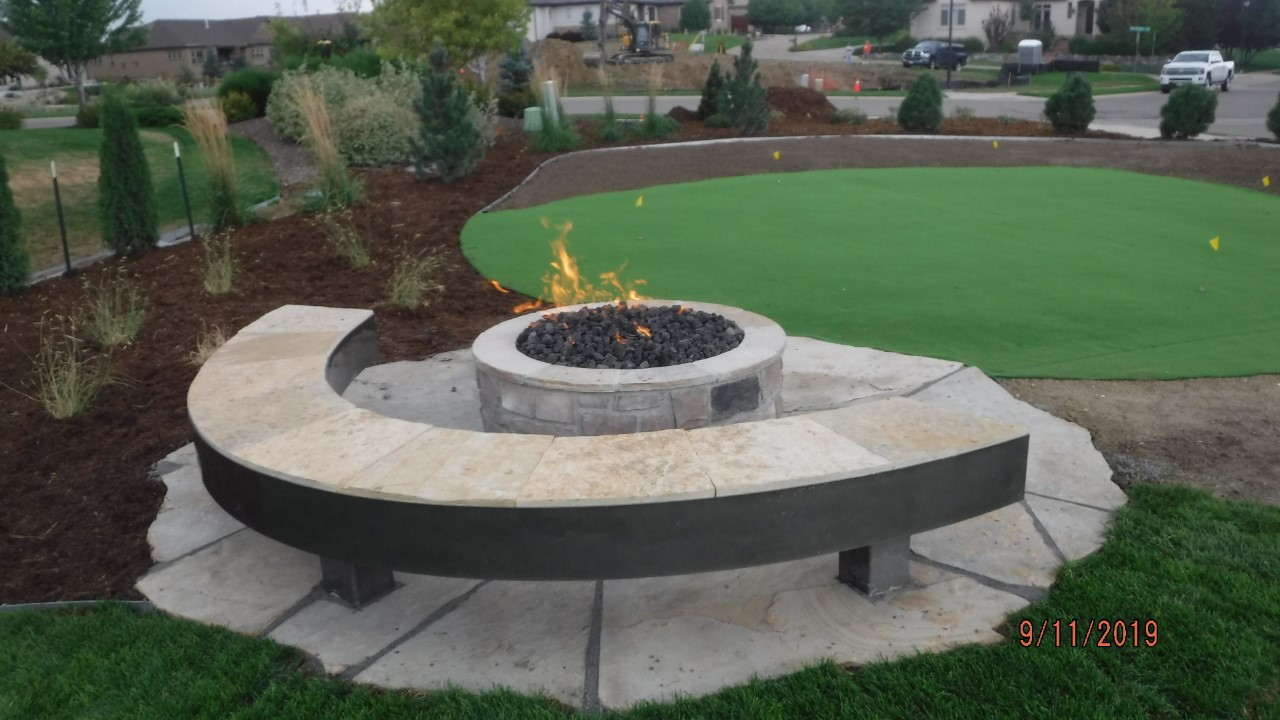Outdoor living spaces have evolved far beyond simple seating areas. Today’s homeowners are transforming patios into fully functional extensions of their indoor environments. Features like outdoor kitchens, gas fire pits, and heating systems add comfort and convenience but require one essential element for safe operation: a properly installed and upgraded gas line.
Upgrading an existing line or installing a new one for outdoor use demands expert planning, material selection, and adherence to local safety codes. Whether you are modernizing an older property or expanding your outdoor amenities, understanding the process and safety requirements ensures your investment functions efficiently and safely.

Why Upgrading Gas Lines Matters
Aging or undersized gas lines can restrict the performance of outdoor appliances and potentially create hazards. Many homes built decades ago were not designed to handle the fuel demands of modern outdoor living setups. When multiple appliances share the same system, pressure imbalances or small leaks can occur.
Here are key reasons to upgrade your outdoor gas infrastructure:
- Safety assurance: Modern gas lines are built with materials that resist corrosion and pressure fluctuations, minimizing the risk of leaks.
- Efficiency and flow: Newer systems maintain stable gas pressure, ensuring consistent performance for fire pits, grills, or patio heaters.
- Compliance with codes: Updated lines meet current building and safety regulations, helping you avoid fines or system shutdowns.
- Future readiness: Upgrading allows for additional gas-powered features later, such as outdoor stoves or lighting.
- Leak prevention: Old or damaged pipes increase the likelihood of leaks that may require professional gas leak repair.
If your patio gas line has not been inspected in years, it may not meet modern safety or performance standards. Upgrading provides peace of mind and reduces the risk of disruptions during heavy usage seasons.
Assessing the Condition of Existing Lines
Before any upgrade, a licensed technician will evaluate your current gas infrastructure to determine whether replacement or extension is necessary. This assessment involves examining pipe materials, fittings, and connections to identify corrosion or damage.
Warning signs that your gas line may need attention include:
- Rust or discoloration on exposed pipes
- Fluctuating appliance performance
- Unusual smells or faint hissing sounds near joints
- Visible cracks or corrosion on connectors
- Inconsistent gas pressure across appliances
If these issues arise, it’s critical to address them immediately. Delaying inspection can lead to performance problems or even safety risks. Many older properties, particularly those with galvanized steel lines, can benefit from modern replacements. For further insight into why property age matters, check this guide on why old homes may need gas line replacements.
The Process of Upgrading Patio Gas Lines
Upgrading gas lines for patios requires precision, planning, and adherence to strict safety protocols. Professionals approach each installation with attention to both performance and compliance.
A typical process includes:
- Initial assessment: Evaluating existing gas supply, determining demand, and identifying the best routing for new lines.
- Material selection: Choosing appropriate pipe materials such as flexible corrugated stainless steel tubing or durable polyethylene for underground lines.
- Pressure testing: Ensuring all fittings and connections can handle the operational pressure required by multiple appliances.
- Trenching and installation: Running the line safely from the gas source to the outdoor area with protection against weather and corrosion.
- Final inspection: Testing for leaks, pressure stability, and code compliance before connecting to outdoor appliances.
Professional installation guarantees that each connection point is sealed properly, preventing leaks or interruptions. You can read more about the detailed steps in this resource on installing a new gas line for an outdoor kitchen.
Common Mistakes Homeowners Should Avoid
Although some homeowners attempt to install or upgrade gas lines on their own, doing so introduces unnecessary risks. Gas systems require technical expertise, specialized equipment, and compliance with municipal codes. Common DIY errors can lead to costly damage or unsafe conditions.
The most frequent mistakes include:
- Using incorrect pipe materials: Not all pipes are approved for gas use or outdoor exposure.
- Skipping permits or inspections: Unapproved work can lead to violations or insurance issues later.
- Improper fittings and sealants: Incorrect components can result in leaks or restricted flow.
- Failing to test for pressure balance: Uneven gas flow affects performance across multiple appliances.
- Ignoring long-term maintenance: Neglected systems develop corrosion or hidden leaks over time.
To ensure durability and safety, it’s best to rely on professionals familiar with local codes, high-capacity systems, and long-term maintenance standards.
Maintaining a Safe Outdoor Gas Setup
Once your gas line is properly installed and upgraded, ongoing maintenance is key to keeping it safe and functional for years.
To maintain optimal performance, homeowners should:
- Schedule annual inspections: Have a certified technician check for leaks, corrosion, and pressure stability.
- Keep fittings clean and dry: Dirt or moisture buildup can weaken joints and connections.
- Avoid overloading systems: Each appliance should have an adequate gas supply without straining the line.
- Use protective coverings: Shield outdoor fittings from extreme temperatures and weather exposure.
- Address leaks immediately: If you notice an odor or hear hissing, shut off the gas and call for professional gas leak repair.
A proactive maintenance plan helps prevent disruptions and ensures your outdoor features operate efficiently through every season.
Keep Your Outdoor Space Safe and Functional
An upgraded gas line can completely transform the functionality of your patio while ensuring your family’s safety. Whether you’re adding new features or replacing old infrastructure, professional installation is the most reliable way to guarantee quality and compliance.To learn more about safe installation and maintenance options, contact The Gas Connection. Our licensed experts specialize in precision upgrades, reliable testing, and complete gas leak repair services to keep your outdoor space running safely and efficiently.